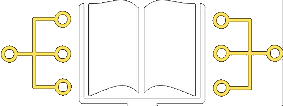Digital Storytelling and Social Justice Speaker Series
ptwo/Flickr
Babble Lab’s “Digital Storytelling and Social Justice” speaker series features innovative explorations of the potential of digital storytelling.
Digital storytelling has recently emerged as a term that captures the potential of twenty-first century media change--especially for the new opportunities it represents to engage with questions of race, identity, and the possibilities for social and political change.
In the digital humanities, scholars have created online platforms, such as the Digital Harlem initiative, to provide access to previously unavailable archival materials that can help uncover excluded stories. In journalism, experimental projects such as Daniel Alarcón’s Radio Ambulante, which recently became the first Spanish-language podcast on NPR, are providing a new forum for narrating the experience of Latin Americans throughout the Americas. In television and film, a new generation of screenwriters (Marvin Lemus, Fatimah Ashgar) has used YouTube, Vimeo, and Netflix to produce programs that tackle issues of race, identity, and social change that Hollywood has long been criticized for addressing too slowly. In the arts, new methods of mapping the past and engaging communities in the present have made it possible to provide new ways of contemplating racial identity and grappling with our long history of struggle for social justice (Eric Loyer, ?).
During our current moment of political crisis, this interdisciplinary wave of experimentation with digital storytelling provides a critical counterpoint to the use of digital media by extremists on the right to advance racist and anti-democratic views.
Through engagement with key innovators in digital storytelling, we will ask: How are these projects negotiating between old conventions in their own fields and new practices that are traversing disciplinary and industry boundaries? How are such processes of transition also leading to new ways of thinking about identity, community, and the possibilities for social and political change? What can we learn from the past and the present about the possibilities and the pitfalls of seeking social change through media change?

